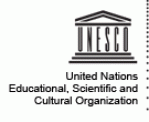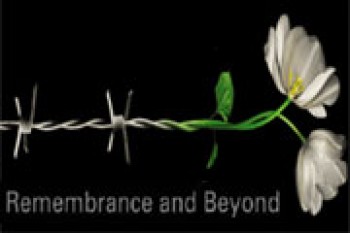UNESCO forum to discuss role of Holocaust education in fighting prejudice
UNESCO forum to discuss role of Holocaust education in fighting prejudice
30 January 2012
The conference, which will be hosted by the UN Educational, Scientific and Cultural Organization (UNESCO), will provide an opportunity to debate the role of Holocaust education in the global fight against racism and anti-Semitism. It will also allow the attending experts to discuss the need to preserve the memory of the Holocaust in areas of the world where it is less well known.
Last week, the UN marked the International Day of Commemoration in Memory of the Victims of the Holocaust, which is observed annually on 27 January, the anniversary of the liberation of the Auschwitz death camp.
In a declaration marking the occasion, UNESCO Director-General Irina Bokova emphasized the need for Holocaust education as part of the overall fight against intolerance.
“Transmitting the memory of the Holocaust is a vital part of the struggle to combat ignorance and prejudice through education in humanist values, the sharing of cultures and knowledge of history,” Ms. Bokova said.
“Education is a key front in this struggle and also UNESCO’s unique contribution, through our work for youth, training of teachers and curriculum design,” she added.
The UNESCO conference will feature debates and lectures from leading international Holocaust experts as well as a talk delivered by Henri Borlant – a survivor of Auschwitz-Birkenau.
The forum will also feature a special ceremony focusing on the theme of “Children in the Holocaust” to pay tribute to the estimated 1.5 million children who perished during the genocide.
###
About UN Educational Scientific and Cultural Organization (UNESCO)

UNESCO works to create the conditions for dialogue among civilizations, cultures and peoples, based upon respect for commonly shared values. It is through this dialogue that the world can achieve global visions of sustainable development encompassing observance of human rights, mutual respect and the alleviation of poverty, all of which are at the heart of UNESCO’S mission and activities.
The broad goals and concrete objectives of the international community – as set out in the internationally agreed development goals, including the Millennium Development Goals (MDGs) – underpin all UNESCO’s strategies and activities. Thus UNESCO’s unique competencies in education, the sciences, culture and communication and information contribute towards the realization of those goals.
UNESCO’s mission is to contribute to the building of peace, the eradication of poverty, sustainable development and intercultural dialogue through education, the sciences, culture, communication and information. The Organization focuses, in particular, on two global priorities:
- Africa
- Gender equality
And on a number of overarching objectives:
- Attaining quality education for all and lifelong learning
- Mobilizing science knowledge and policy for sustainable development
- Addressing emerging social and ethical challenges
- Fostering cultural diversity, intercultural dialogue and a culture of peace
- Building inclusive knowledge societies through information and communication
###
> United Nations (UN).
 The United Nations was established on 24 October 1945 by 51 countries committed to preserving peace through international cooperation and collective security. Today, nearly every nation in the world belongs to the UN: membership totals 192 countries.
The United Nations was established on 24 October 1945 by 51 countries committed to preserving peace through international cooperation and collective security. Today, nearly every nation in the world belongs to the UN: membership totals 192 countries.
When States become Members of the United Nations, they agree to accept the obligations of the UN Charter, an international treaty that sets out basic principles of international relations. According to the Charter, the UN has four purposes:
- to maintain international peace and security;
- to develop friendly relations among nations;
- to cooperate in solving international problems and in promoting respect for human rights;
- and to be a centre for harmonizing the actions of nations.
###
* The above story is adapted from materials provided by United Nations (UN)
** More information at United Nations (UN)





















